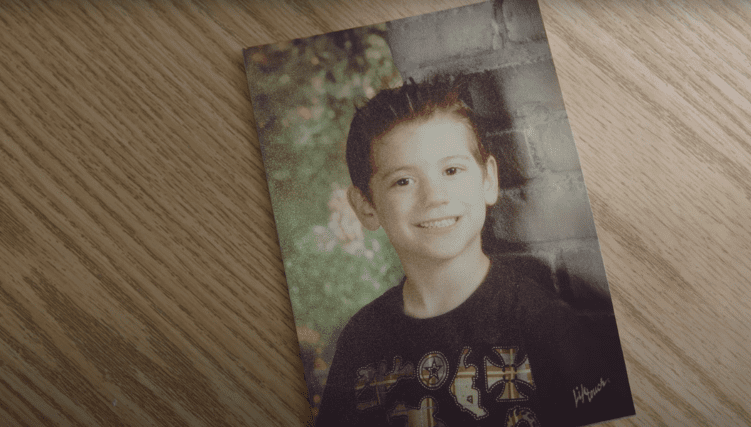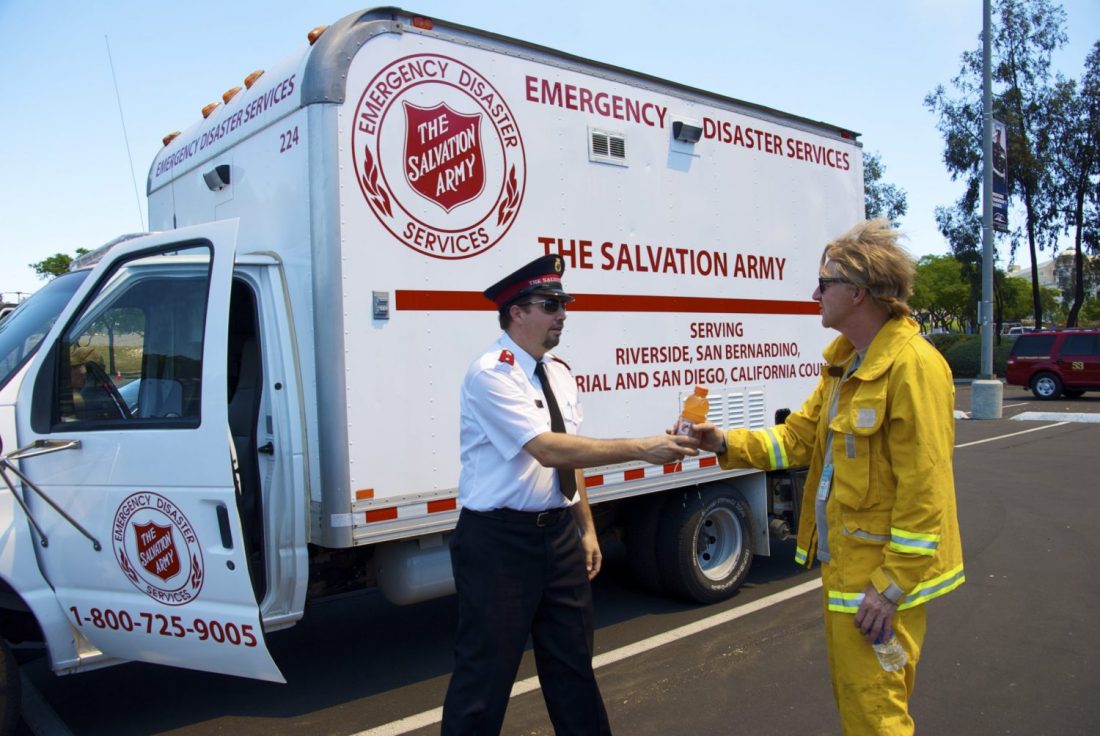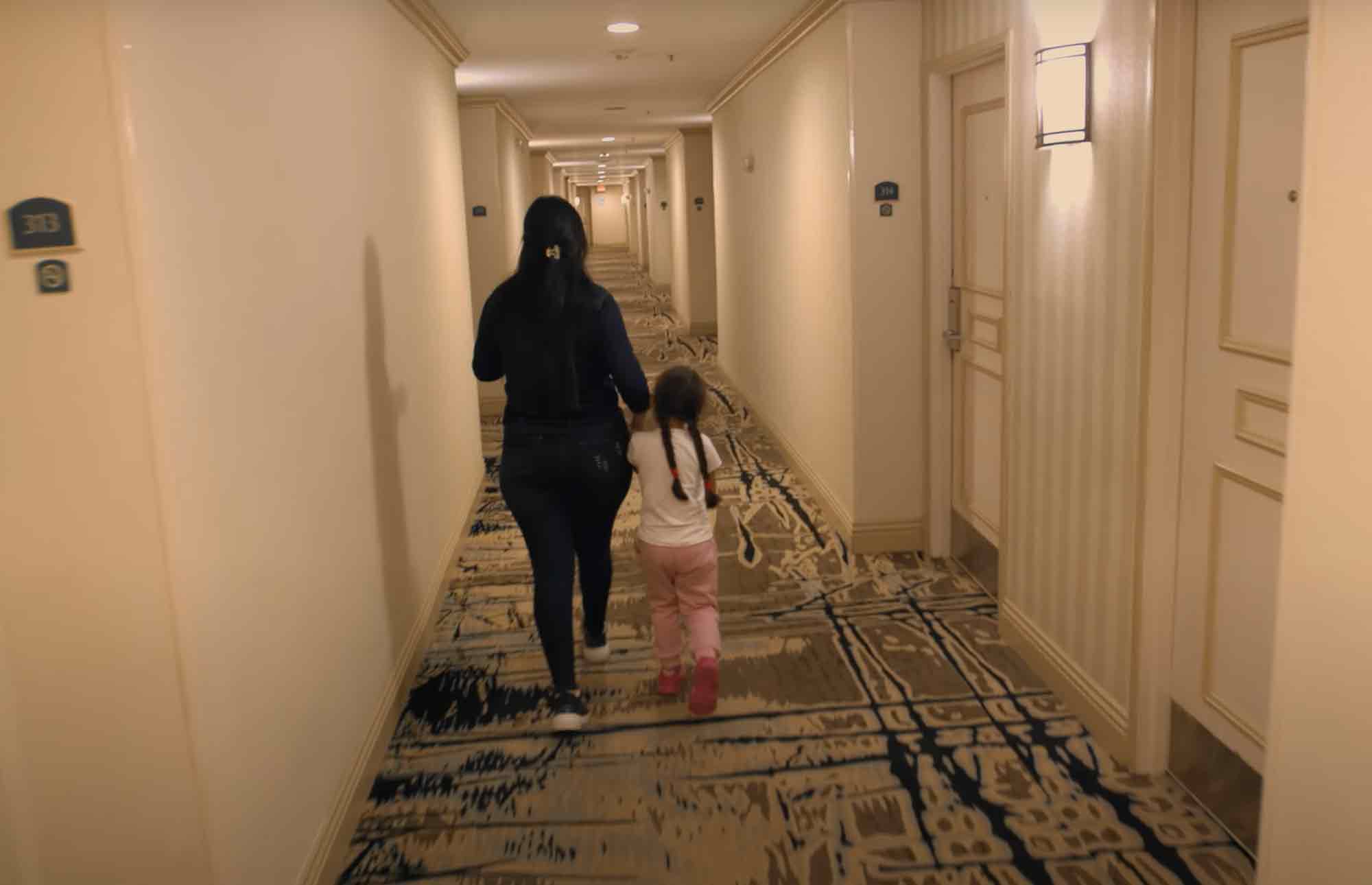Part of The Salvation Army’s mission is to meet the needs of individuals of all backgrounds, without discrimination. Some needs are more unique than others and require special attention. Dalton was diagnosed with autism spectrum disorder at a young age, but when he arrived at the Bakersfield Corps he was welcomed like every other kid. See how the church body embraced him and made him feel at home, and be inspired to reach out and make others feel welcome at your own church.
Read the transcript of the video here:
Angela Low: I’m a single mom. Simple tasks were super hard. It’d be a challenge. It’s like getting out the door sometimes. You could be getting out the door for thirty minutes. Or just showers or I mean the simple little things are just not so simple, and the shower was where I cried. You know, I mean, there’s days where I just felt like I just couldn’t do it. [To Dalton] What does that say? Dolphin on the wall there.
Dalton Low: I’m raising a child with autism. What’s your superpower?
Angela: And who has autism?
Dalton: Me.
Angela: Yep. Dalton was diagnosed with autism when he was like 18 months old.
Captain Christina Arnold: Autism is a developmental disability. It affects a way a person may perceive or respond to the world around them. The CDC is reporting that one in fifty-nine children are diagnosed with autism.
Angela: We noticed when he was a year he wasn’t talking. He was non-verbal for a long time. Basic needs, you know, were hard to mess with. That brought issues like anger, and communication was very hard.
Captain Christina: Some things that people find easy, someone on the spectrum might find a little more difficult, such as building relationships. Sensory processing, how they retain information, or how they retain information or express information or their, or their needs. They may struggle with language or routines. In fact, a lot of people have different impairments.
Angela: You can hear so many things, so there’s certain things, it’s painful for him. We didn’t have a car, so we take the bus a lot. Just being friendly and saying hi, and you know he would ask questions, “How old are you?” And they would act like he was just bothering them, and some people would make comments about this child needs to be disciplined. Like at the Christmas party or things like that when other kids would get certain gifts may be that he wanted, and we didn’t have a good communication system set, and sometimes we’d have to just leave.
This was during the summertime, and we needed food, and we’d heard about The Salvation Army, and they were just a couple blocks away, and they were setting up for a vacation Bible school, and they told us you should come back tonight it was the first night. I’m used to my daughter being invited a lot of places and not him, and I said, well, you know about him? They’re like yes, you know, of course. They were just like, you know, they’re so welcoming and, and I went back the next night. I think it was like the third or fourth night. They both, you know, asked Jesus into their heart.
Salvation Army Officer: For the outing in a couple weeks, I think we’ll start with the regular tent for backpacking.
Child: Oh, close the plate right here?
Salvation Army Officer: Yep. Now you do the same thing to this pole.
Captain Heather Pope: A few of the struggles that mom would normally have was worrying about him being accepted. She’s fought so hard for different things in school for him wanting to be in the band and just how the kids are treating him.
Angela: I just want my kids to know they’re safe, that they’re loved, that they can come to me.
Captain Christina: Communication is the first and probably one of the most important ways to reach out to the families and express that they are wanted and that they are loved, and that they are accepted within our programs.
Captain Heather: He’s just really adapted, and the kids have just accepted him.
Angela: They’re doing the most good is just so appropriate because it’s outpouring, I guess, of love I just feel from them all the time. Still like, with his hearing, I’m just amazed. I don’t even understand how like they did. You play five keys on piano, and he’ll tell you, every one, what they are.
Dalton: I’m really good at drums. I’m really good, yeah. I’m good at guitar, really good at guitar.
Speaker One: He loves his guitar, never leaves his side. He takes it everywhere. In fact, he takes it to school.
Dalton: I love the music because I like the sound of music.
Speaker One: He’s a very talented young man for sixteen.
Captain Christina: Oftentimes we wait until there’s a problem to start communicating with families. We should start communicating right off the bat. Their family member might need someone to be assigned to care for that person specifically.
Captain Kevin Pope: When he stands up, and he starts kind of walking and pacing, and we’ve even had like our worship leader have him, you know, step into the chapel and kind of practice his guitar, you know, we can help calm him back down.
Dalton: When we get a tiny bit angry, he said, “Take a deep breath.”
Angela: They were able to step in and calm him and talk to him, and to redirect him.
Captain Heather: Our worship leader, Phil, he met him, and Dalton just adored this man. He really just encourage him to come and join the worship team.
Captain Kevin: Phil would just stand by his side and mentor him and teach him and praise and worship and how to be on stage in front of the congregation and just really took him under his wing.
Angela: That was his first probably attachment to a person, and he just loves him.
Captain Kevin: Dalton is actually now the lead guitarist in our praise and worship team.
Speaker Two: Marcos, go ahead and bring us in, and then Dalton, you’ll follow in guitar.
Emma Garcia: Every month, we allow him to pick up his own songs and to lead praise and worship. It’s been a real good fit just because of the fact that he just enjoys singing to God, enjoys playing any type of instrument.
Dalton: It’s good to praise God.
Captain Kevin: It’s really special, and our congregation just really loves it. Having him up there has given him a sense of purpose, I think. It really just comes down to, to loving them and accepting them, you know, for who they are. Recognizing what are their spiritual gifts? What are their strengths? For figuring out where can they get plugged in. To me, that’s just really special. Just seeing how these other teenagers just kind of took him in and they love him like a brother and, and just the way they interact with them is really neat.
Dalton: At church, I have a lot of friends.
Angela: Since going there, he had his first sleepover. I mean, that was like a big deal, you know.
Captain Kevin: It’s really exciting to see him grow and build those friendships and those relationships and that security of the corps and knowing it’s a safe place. You know, it’s just one big family for him.
Angela: They just took us all in like their own. They were able to fulfill the need that my kids had for a positive male role model in their life.
Captain Christina: I think that’s absolutely beautiful when a corps can just circle around someone and include them and accept them for who God made them and enjoy the gifts that God has given that person.
Emma: I have rheumatoid arthritis, so sometimes I cannot move correctly. He just came and hugged me and said, “I’m praying for you. I love you. I hope you feel better.” It’s just that loving nature that, that we really appreciate.
Angela: You know, how they used to say like when everybody had their God’s but our God, the God of Jacob or the God of, you know. I want God to be so prominent in our life that they say, “That’s the of Angela, Dalton.” You know what I mean? The things he’s gonna do in our life. It’s, you’ll be able to tell it was God because it was not us because we can’t even handle this ourselves. One thing like planning for his future stuff. I always think about, I know he’s gonna have somewhere in The Salvation Army. I mean, I feel comfortable with that, knowing he’ll always have a place.
Do Good:
- See more videos like this in our video feed.
- Are you a Do Gooder, someone who cares about bringing goodness into the life of your family and community? Subscribe to The Do Gooders Podcast to be inspired by those doing good and find tangible tips for simple actions you can take today.
- Did you know The Salvation Army served more than 23 million Americans last year fighting hunger, homelessness, substance abuse and more—all in a fight for good? Where can you help? Take our quiz to find your cause and learn how you can join in today.

















